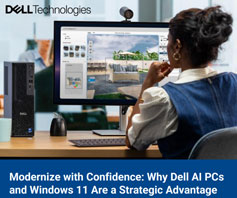CPU cooling is the unsung hero of computer design. Without it, the various components inside a desktop or laptop computer would eventually overheat and stop working.
As a CPU operates, its transistors convert electrical energy into thermal energy. While the CPU often creates the most heat, other components like the GPU, RAM, storage devices and power supply also add to the internal ambient temperature of a PC.
Air and liquid cooling are the two most popular methods of combatting this ever-rising temperature. Both offer pros and cons.
Air cooling transfers heat from a CPU to a conductive baseplate. From there, heat travels to attached heat pipes designed to conduct heat away from vital components. This heat is then delivered to a heatsink, a structure comprised of many thin metal fins. The fins maximize exposure to cooler air, which absorbs heat from the metal. This is known as passive air cooling.
Active air cooling begins similarly, transferring heat away from a component via pipes and a heatsink. It then adds the element of powered fans, which more efficiently move heat away from the system and out of the computer chassis.
Some computing applications, like scientific research and gaming, require more power and, therefore, produce more heat. In these situations, the PC may be better served by a liquid cooling system.
Liquid cooling begins similarly to air cooling, transferring heat away from the CPU via a baseplate coated with thermal paste. In this case, however, the baseplate forms part of a coolant-filled water block.
The coolant absorbs the heat and carries it through a water-tight tube to a radiator, moving the heat away from the cooler. Once the heat has moved to the radiator, the coolant then begins its return journey to the heat source, and the process starts again.
While liquid cooling is markedly more effective and efficient than air cooling, it has drawbacks. Liquid cooling systems are more expensive than their air-cooling counterparts. And more complex liquid cooling often requires more maintenance.













